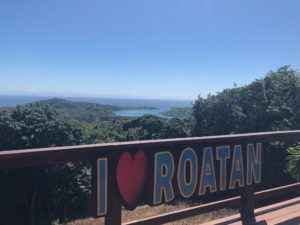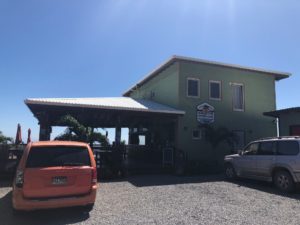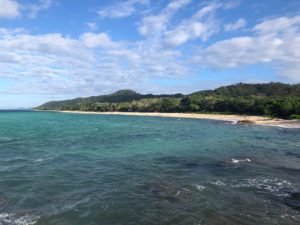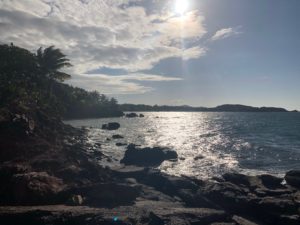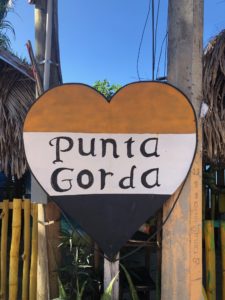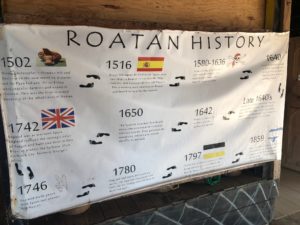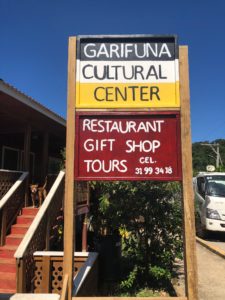It’s a bit scary to think about how fast time is flying, two weeks down and two more to go. This week I felt much more in my element, and was able to increase my efficiency in the Clinic. Having been able to see patients independently and present them to Dr. Canales has helped me monumentally with my Spanish, and each day feels a little easier. Of course there are still some conversations where I know my language barrier presents a barrier to care, and in these moments he is always available to help me and translate. For the patients I can handle independently, he gives me room to work and trusts my intuition. Management of things like chronic medication refills, musculoskeletal aches and pains, GERD, or upper respiratory/urinary tract infections allows me to fill in heavily. I’ve really come to see this the last week, and its helped me feel more integral to the work he and the clinic are doing. To think I’m able to help alleviate the patient load for him and the other Fam Med doc down here gives me more appreciation to the hard work of the last four years. The patient care conversations have also become easier and easier, and without a doubt the experience in Ashley Regional Hospital during my third year prepared me for this. The verbal exercise of engaging a patient gets easier with practice, but it was humbling after having the safety rug of my native tongue being pulled out. While awkward at first, just like anything, its easier with practice. Feelings of apprehension and anxiety when entering a new and unfamiliar environment are normal, but it’s for this reason that getting out of your own bubble is so important. It’s easy to get caught up in your own day to day, with your own stresses and battles, and to in turn reflect these onto others while turning a blind eye to what their experience may entail. Getting out of your comfort zone, getting a little uncomfortable, exposing yourself to the difficulties others face, remains an important part of these trips.
It’s natural to compare, experience, environment, and opportunity. It helps me gain perspective, and one perspective I’ve gleaned so far is that we’re not that different back home from here. A large portion of our patients present for management of chronic conditions, like hypertension and diabetes. During my family medicine rotation we saw exactly this. The differences arise from the clinics place in the bedrock of this community. These people here rely on the clinic to get their medications at a reasonable price, and with many struggling financially they would be out of luck if the clinic found themselves without the pharmaceutical donations they so desperately need. Irbesartan, hydrochlorothiazide, aspirin, amlodipine, metoprolol, and metformin. These drugs are as essential here as they are back home, but the key difference is availability. Availability skewed by a variety of socioeconomic factors. In this vein many struggle, and their health is what may fall by the wayside. There have been a few firsts here. The first time I saw a blood pressure of 230/120, with a patient casually sitting there smiling at me, saying they feel great. Other BP’s of 190/110, 190/120, 210/120, and 170/100 make me see the prevalence yet undertreatment of this issue. Its as easy as taking their medication every day, but getting that medication every month presents their barrier. Roatan is also a cruise ship island, so the days that cruise ships dock in the port bring with them passengers ready to spend money. The Islanders know this, and each day a cruise ship is here we have much less patients. The financial opportunity takes precedence when the focus is to feed your family for the next month, rather than take medication to prevent a problem years down the road. Unfortunately one thing leads to another, and a missed appointment may turn into several. I had one patient this last week, and English speaking Islander with Garifuna roots, who knew he had high blood pressure and needed medication, but has gone without it for the last four years. He expressed understanding about his condition, and relayed the ways in which he has tried to change his lifestyle in the last few years to no avail. His symptoms of palpitations, tachycardia, easily becoming winded with little activity, and having to rest several times just climbing the hill to the clinic give way to anxiety over his, and his children’s, future. I tell these patients not to sweat over spilled milk, and to not focus on a less than perfect past. I tell them to focus on what they can control, and to build a better tomorrow. We will see him again next week, with 5 days worth of BP values collected to confirm his diagnosis, or at least I hope we will see him next week. Its tough to know sometimes.
Amigdalitis, or the Spanish word for Tonsillitis, and how much I’ve seen it here came as a shock. The amount of adult patients I have treated here for this rivals my experience in pediatrics back in the Dinosaur Land Pediatrics Clinic from Vernal, UT. Many young adults, but also many middle aged individuals as well. One patient was 62 years old, and she actually had the largest tonsils I had ever seen. I took the time to pull a fellow volunteer, a nursing student, aside to show her. These tonsils were massive. Easy to diagnose and easy to treat, these patients are usually a quick in and out, but its funny to me to think how drastically people back home hold themselves in contrast to the Hondurans here. In many ways we are different, but in many ways we are the same. The patient back home got Augmentin, as does the patient here. I tell the American to take it with food, as I do the Honduran. I tell them “Si no se siente bien despues una semana, regresa aqui” (if you don’t feel better after a week, come back), just the same. Other issues mirror themselves from home and abroad. Upper respiratory and urinary tract infections are just as common here. Aches and pains are also a common shared complaint after a lifetime of work, and GERD is as present here as it is back home. One other thing I have learned from Dr. Canales is that we offer almost each patient vitamins, and he came to explain that often times its not for the patient only but the patients family at large. Or even the neighbors who may have fallen on hard times. This helped me further appreciate the role of the clinic, and how essential its place is to the “La Colonia” community whom we serve. While this week doesn’t feature any dramatic stories like suturing and the lights cutting out, or being surrounded by a school of surgeonfish, each day has a beauty to it that will leave me sad once I depart. Attached are some pictures from exploring Punta Gorda and Camp Bay, a bit of a trek out there but definitely worth the time.
